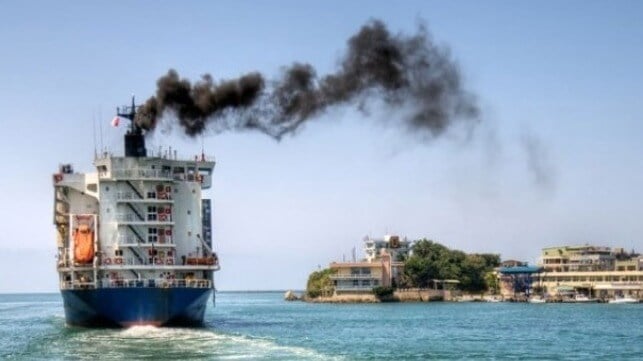European Parliament Adopts Green Shipping Standards with 2% Target

The European Parliament today adopted its position on the FuelEU Maritime Regulation agreeing to the first definitive steps to drive the adoption of alternative and low carbon fuels. While being recognized as a first step and laying the groundwork for the negotiations with the European community, environmentalists and even the shipping industry are saying more needs to be done to achieve the goals for decarbonization of the industry.
Members of parliament voted overwhelmingly in favor of the adoption of standards that call for the maritime sector to cut greenhouse gas emissions from ships going beyond the levels set out by the European Commission. Parliament voted in favor of requiring ships to cut GHG emissions by 2 percent by 2025, 20 percent by 2035, and 80 percent by 2050, compared to the 2020 level. The Commission had proposed a 13 percent and 75 percent reduction. Parliament also voted in favor of setting a target of 2 percent usage of renewable fuels and mandated containerships and passenger ships to use on-shore power supply while at berth at main EU ports as of 2030.
According to the European Parliament, the rules are significant because they will impact 90 percent of CO2 emissions from the maritime industry. The rules as adopted today would apply for ships above 5,000 gross tons and the emission reduction targets are for all energy used on board in or between EU ports, and to 50 percent of the energy used on voyages where the departure or arrival port is outside the EU or in its outermost regions.
“This is by far the world’s most ambitious pathway to maritime decarbonization,” said Jörgen Warborn, a member of parliament from Sweden and spokesperson on the issue of sustainable maritime fuels. “Parliament's position ensures that our climate targets will be met rapidly and effectively, safeguarding the maritime sector's competitiveness and ensuring there won’t be carbon leakage or jobs leaving Europe.”
Environmentalists, however, had advocated for stricter standards for the maritime industry. The NGO Transport & Environment, for example, won the support of 50 corporations and NGOs in calling for the mandate to be at 6 percent by 2035. The group also called for a removal of the exemption for companies with three ships or less, noting that the version approved by the Parliament would exempt 60 percent of shipping companies. T&E is also highlighting that the version adopted failed to announce a GHG reduction target of 100 percent in 2050, which would have effectively phase-out all greenhouse gas emitting fuels.
Despite not getting all of the elements it was calling for, Delphine Gozillon, sustainable shipping officer at T&E, commented “This is the beginning of the end for fossil fuels in Europe's shipping industry. The green shipping fuel mandate will kickstart the production of hydrogen-based fuels by providing investment security for fuel producers. But 2 percent will not be enough if we are to stick to 1.5 degrees. The EU must build on this and go bolder. There is a clear will to clean up the shipping industry. This is just the start.”
Citing what it calls “shipping’s worrying shift to LNG,” T&E wanted stricter GHG targets. Gozillon however said that today’s actions “does signal that there is no long-term future for fossil LNG in shipping.”
Speaking on behalf of European shipowners, the European Community Shipowners’ Association said it welcomed the progress made on the proposal, but stress that more needs to be done to facilitate the energy transition and the decarbonization of the industry.
“Ensuring access to affordable clean fuels is a major challenge for the decarbonization of shipping,” said ECSA’s Secretary General Sotiris Raptis. “Clean fuels currently sit on the most expensive side of the spectrum and therefore action is needed to bridge the price gap.” The group is continuing to lobby for more involvement of fuel suppliers, measures to ensure adequate volumes of alternative fuels to shipping companies calling at EU ports, and efforts to close the price gap.

that matters most
Get the latest maritime news delivered to your inbox daily.
To ensure compliance with the new standards, the European Parliament also voted in favor of the introduction of penalties. As adopted the proposal calls for revenues generated from the penalties to go to an Ocean Fund to contribute to decarbonizing the maritime sector, energy efficiency, and zero-emission propulsion technologies.
Parliament, however, also provided exemptions, including deleting penalties when ports do not have adequate shore power infrastructure and introducing special conditions for ice-class vessels as well as for islands and the outermost regions of the EU.
